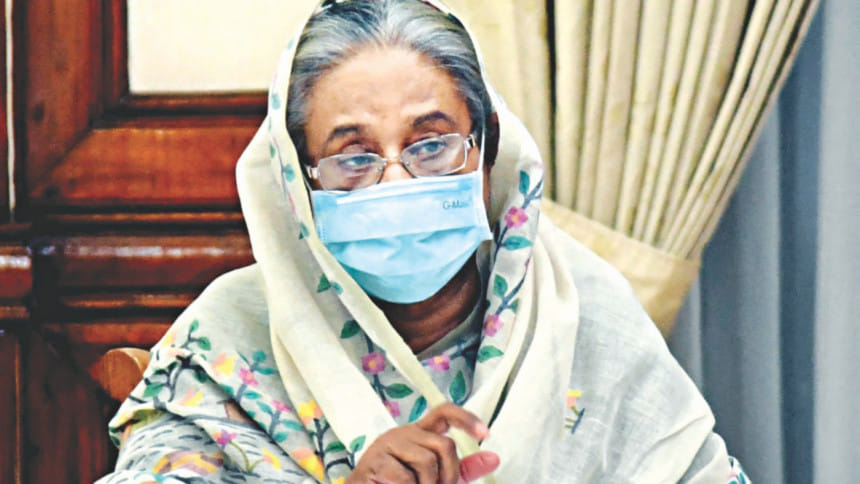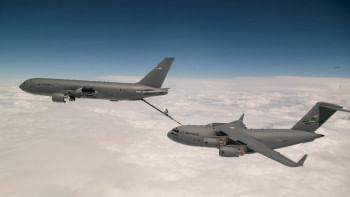Covid-19 and its aftermath: A national council is imperative

Much has happened between the time the virus struck in Wuhan in December 2019 and now. By the time this piece appears in print more than a million and a half people around the world in more than 200 countries will have been affected and nearly a hundred thousand will have succumbed to the virus. China, the first country to be affected by the new virus, appears to have come out of the worst of the pandemic. Not so for many other of the more than 200 countries affected. At the time of writing this piece, one person is succumbing to the deadly disease every two minutes in New York/US.
Bangladesh is facing a situation of unprecedented severity, whose intensity may not be like what some countries are contending with, and hopefully be spared the outcome that has befallen on some countries in terms of number of infected and fatalities.
The health issue has to be tackled with urgency under elaborate action plans. But even that, it appears, lacks well-organised implementation due mainly to the lacunae in the management of the anti COVID-19 efforts. It would appear that specific SOPs for implementing the guidelines by various subcommittees, as the said national committee guideline calls for, have not been worked out as yet. And thus, the PM's guidelines cannot get along properly.
Admittedly, this is an extraordinary health situation but its imminence in Bangladesh was not entirely unforeseen, given the rapid spread of the virus in other countries. But it would not be fair to say that the administration was not prepared, at least theoretically, to face the situation. The "National Preparedness and Response Plan for COVID-19" issued by the DG Health in March this year, which lays down in very great detail what the four likely ways that virus will find its way into our country, and how to deal with those, is an evidence of the government anticipatory work, at least conceptualisation of the course of action.
Under the plan there is the National Committee for Prevention and Control of Covid-19 headed by the health minister and National Coordination Committee for Prevention and Control of Covid-19 headed by the PM's Chief Physician who himself is a medical specialist. And there are committees down to upazilla level including rapid response teams. However, National Preparedness and Response Plan for COVID-19—well formulated and drawn from the WHO guidelines published in February 2020—addresses only the health aspect of the issue.
The government has deployed its resources and it is good to see the prime minister take charge of directing the anti-COVID effort. But, in spite of the best intention of the PM and the administration at the centre, its efforts to implement the action plan to a lower level has gone a bit askew at places. And that calls for working out a comprehensive strategy to deal with the several problems both now and the future. I submit that COVID-19 requires addressing a few other likely outcomes that the pandemic will leave in its wake. Apart from the health issue, we shall have to face other problems long after the virus has taken its last toll, most importantly the economic problem.
We may not face the same trauma health wise as some countries are facing, but we cannot escape the consequences of the pandemic on the world economy which unlike the 2008 meltdown will have a cascading effect on us. And unless all issues are addressed and preparatory action taken for what might come in the future, the consequences might be more severe in terms of human lives and last long after the virus is defeated.
And this, we feel, requires a multi-pronged approach under a comprehensive strategy which makes imperative the creation of a council at the national level headed by the prime minister working 24/7, to coordinate, supervise, guide, and provide the overall direction of the operation for the implementation of the directives more efficiently under the national strategy.
For example, although the policy paper spells out the four ways the virus can spread, the first being from the categories of people arriving from contaminated countries, and lays down the courses of action, the on-ground work were inadequate. Vital actions in some instances were a little late in coming, ostensibly due to lack of decision; the consequences were evident. All instructions and announcement must come from the proposed national council. That would help avoid unwarranted situations, the kind of which the RMG workers faced. In a situation like this the decision to keep the RMG factories open or closed cannot be left to individual owners, as the trade minister had suggested. That decision should be for the government to take.
One feels that the preparatory action in anticipation of return of our citizens, particularly from those countries infected with COVID, could have been better planned and more efficiently laid out. The quarantine station for the incoming Bangladeshi may be OK for haj pilgrims in transit for a day or two, but for families to be quarantined in such a condition for not one two or three days but a least fourteen is unbearable.
Also, for example the government has taken certain decisions which affect people's daily life. The worst affected group is the marginalised, the day labourers and fixed wage earners who no longer have earning opportunities. Getting necessities for subsistence to these people is a big exercise which can't be played by ears. Lack of coordination will lead to wastage of resources and duplication of effort, and lack of strict supervision will result in pilferage, as was evident.
As this paper has repeatedly stressed, what we face today is a kind of war, and like war it must be faced. In this regard it is imperative that a national council be established immediately. Apart from the PM, the Council may consist of home, health, finance, foreign, trade & commerce, overseas employment, transport and labour minsters, PM's Security Advisor, the heads of services, PSO, AFD, cabinet Secretary, PM's Principal Secretary, IGP, senior virologist, epidemiologist and public health experts. The national council should vet the comprehensive strategy and direct the implementation of it in totality during the ongoing pandemic and after it has ended. That we hope will be sooner than later.
The nodal point should be the national council. Centralised planning and clear-cut directives and coordination, and decentralised implementation at the ground level would ensure more efficient application of the strategy and efficient use of resources. Policy decisions should come centrally and not from any individual ministers, that too from those who are not directly related to the issue.
Brig Gen Shahedul Anam Khan, ndc, psc (Retd), is a former Associate Editor of The Daily Star.

 For all latest news, follow The Daily Star's Google News channel.
For all latest news, follow The Daily Star's Google News channel. 



Comments